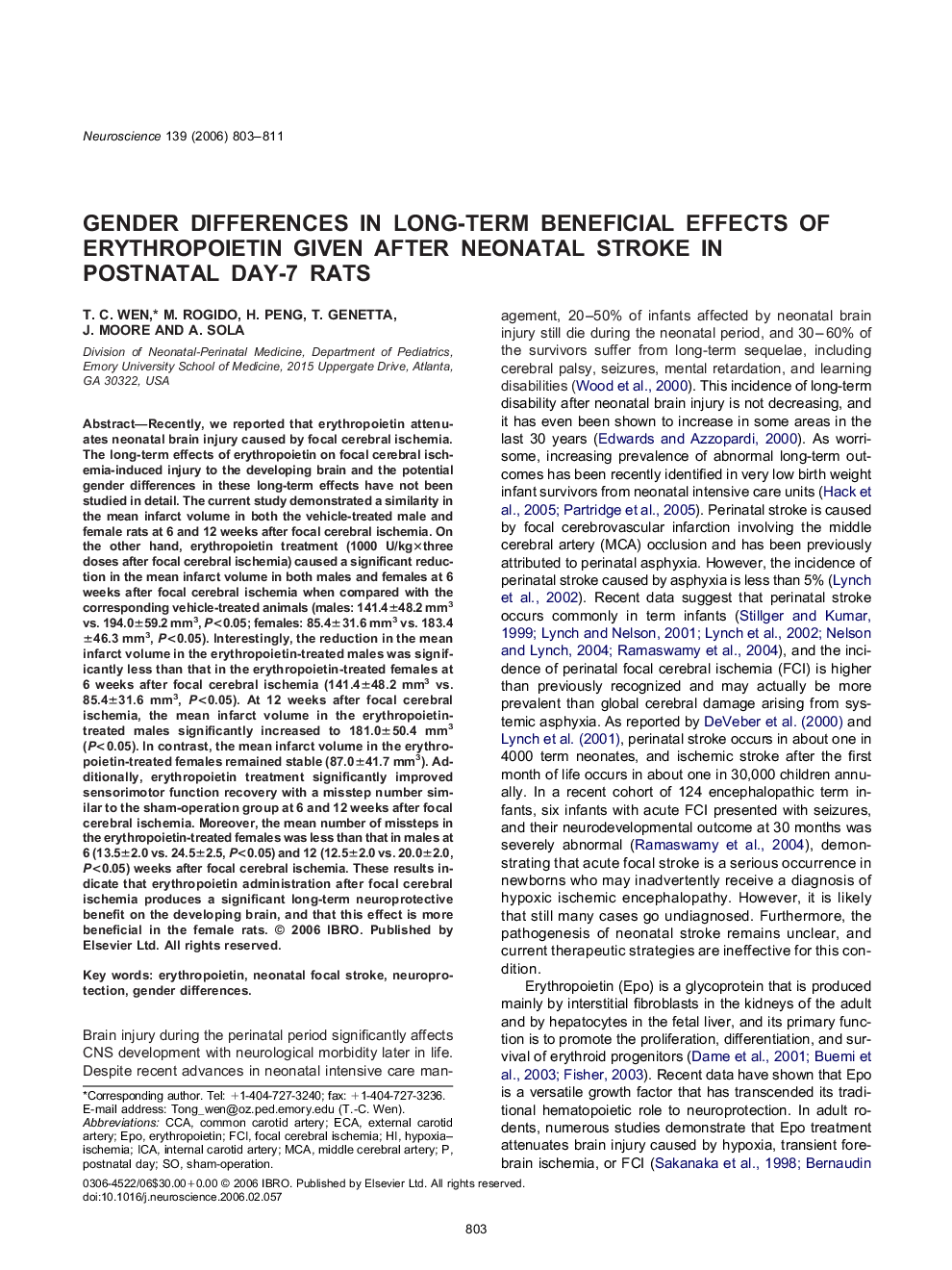| Article ID | Journal | Published Year | Pages | File Type |
|---|---|---|---|---|
| 4341911 | Neuroscience | 2006 | 9 Pages |
Recently, we reported that erythropoietin attenuates neonatal brain injury caused by focal cerebral ischemia. The long-term effects of erythropoietin on focal cerebral ischemia-induced injury to the developing brain and the potential gender differences in these long-term effects have not been studied in detail. The current study demonstrated a similarity in the mean infarct volume in both the vehicle-treated male and female rats at 6 and 12 weeks after focal cerebral ischemia. On the other hand, erythropoietin treatment (1000 U/kg×three doses after focal cerebral ischemia) caused a significant reduction in the mean infarct volume in both males and females at 6 weeks after focal cerebral ischemia when compared with the corresponding vehicle-treated animals (males: 141.4±48.2 mm3 vs. 194.0±59.2 mm3, P<0.05; females: 85.4±31.6 mm3 vs. 183.4±46.3 mm3, P<0.05). Interestingly, the reduction in the mean infarct volume in the erythropoietin-treated males was significantly less than that in the erythropoietin-treated females at 6 weeks after focal cerebral ischemia (141.4±48.2 mm3 vs. 85.4±31.6 mm3, P<0.05). At 12 weeks after focal cerebral ischemia, the mean infarct volume in the erythropoietin-treated males significantly increased to 181.0±50.4 mm3 (P<0.05). In contrast, the mean infarct volume in the erythropoietin-treated females remained stable (87.0±41.7 mm3). Additionally, erythropoietin treatment significantly improved sensorimotor function recovery with a misstep number similar to the sham-operation group at 6 and 12 weeks after focal cerebral ischemia. Moreover, the mean number of missteps in the erythropoietin-treated females was less than that in males at 6 (13.5±2.0 vs. 24.5±2.5, P<0.05) and 12 (12.5±2.0 vs. 20.0±2.0, P<0.05) weeks after focal cerebral ischemia. These results indicate that erythropoietin administration after focal cerebral ischemia produces a significant long-term neuroprotective benefit on the developing brain, and that this effect is more beneficial in the female rats.
